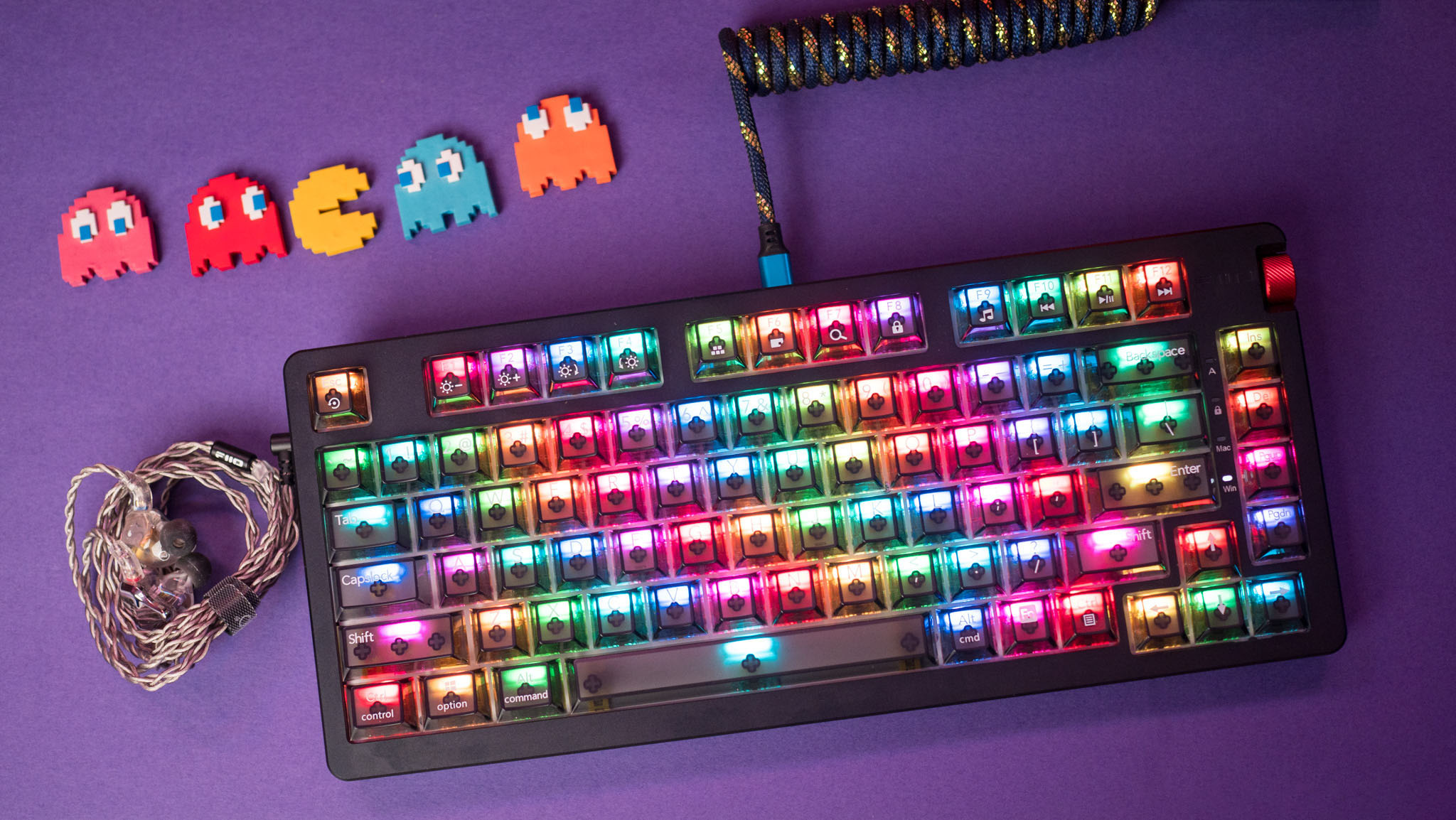
Fiio had a busy 2023 on the back of several product releases, and the Chinese audio manufacturer has no signs of slowing down this year. What's interesting about Fiio's showing last year is that it entered a lot of new categories, and it's continuing that trend into 2024 with the introduction of the KB3, a mechanical keyboard that has a DAC built-in.
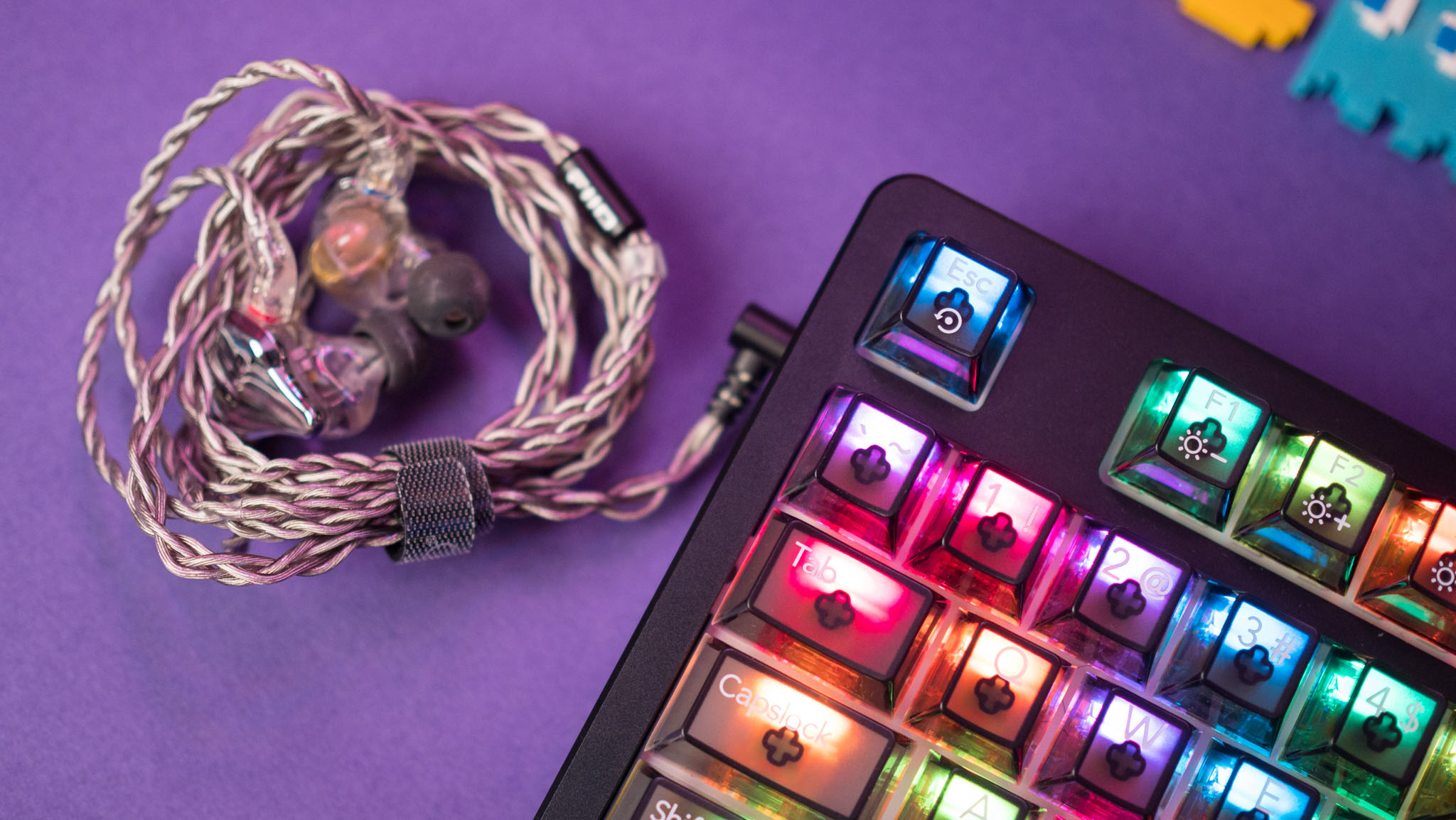
The KB3 debuted at the end of last year, and joins the likes of the FT3 and FT5 headsets in building out Fiio's desktop portfolio. The mechanical keyboard market has never been stronger, and there are dozens of great choices if you want a gasket-mounted keyboard with plenty of customizability. By adding a DAC to the mix, Fiio is looking to differentiate the KB3 to a considerable degree.
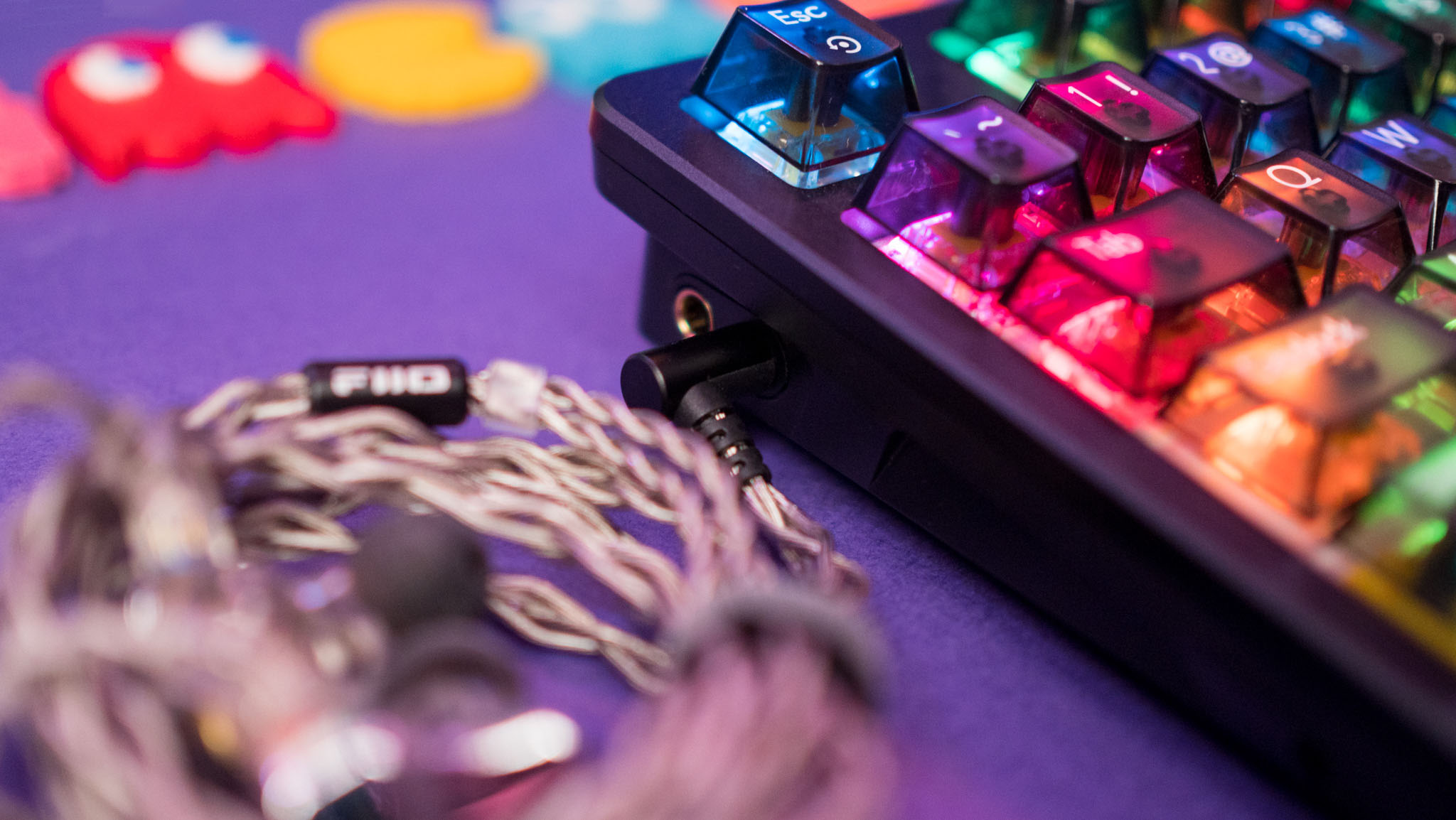
Fiio isn't the only brand that decided to go this route — Moondrop also rolled out a keyboard with a DAC last year. But Fiio operates at an entirely different scale, and the KB3 is aimed at the budget segment. The keyboard is available for $149 on Amazon, and while that's a lot for a mechanical keyboard, the inclusion of the DAC turns this into a two-in-one that doesn't have many parallels.
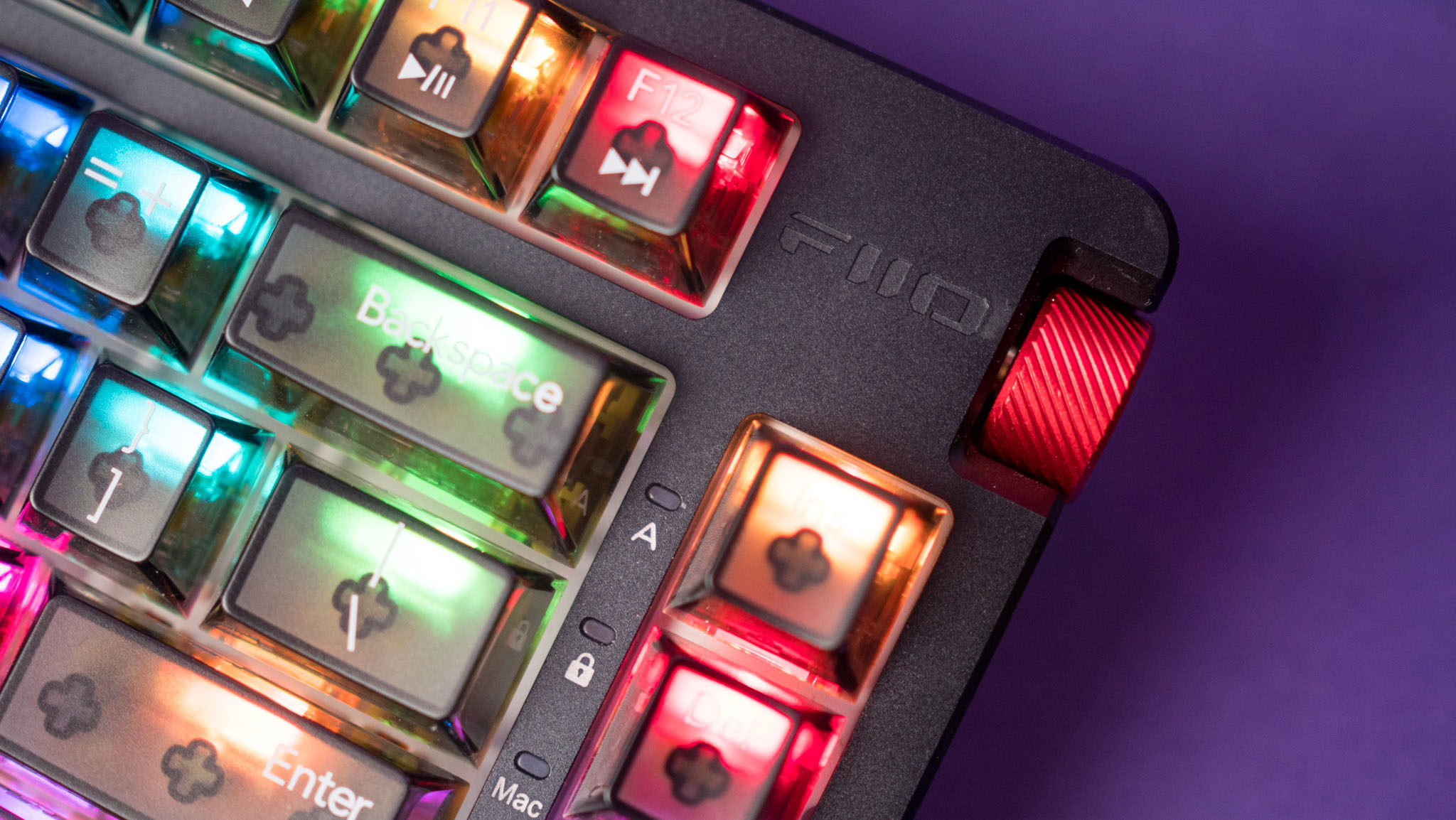
Before we get started, a word on the branding. The KB3 is sold under the Jade Audio label, much like the KA1, KA2, KA3, KA5, KA11, and KA13 DACs and JT1 headset. Jade Audio products are aimed at a younger audience, and the focus is to deliver a good value. I tested most of the products branded under the Jade Audio umbrella, and I'm yet to run into one that I didn't recommend — the $29 KA11 dongle DAC in particular is outstanding.
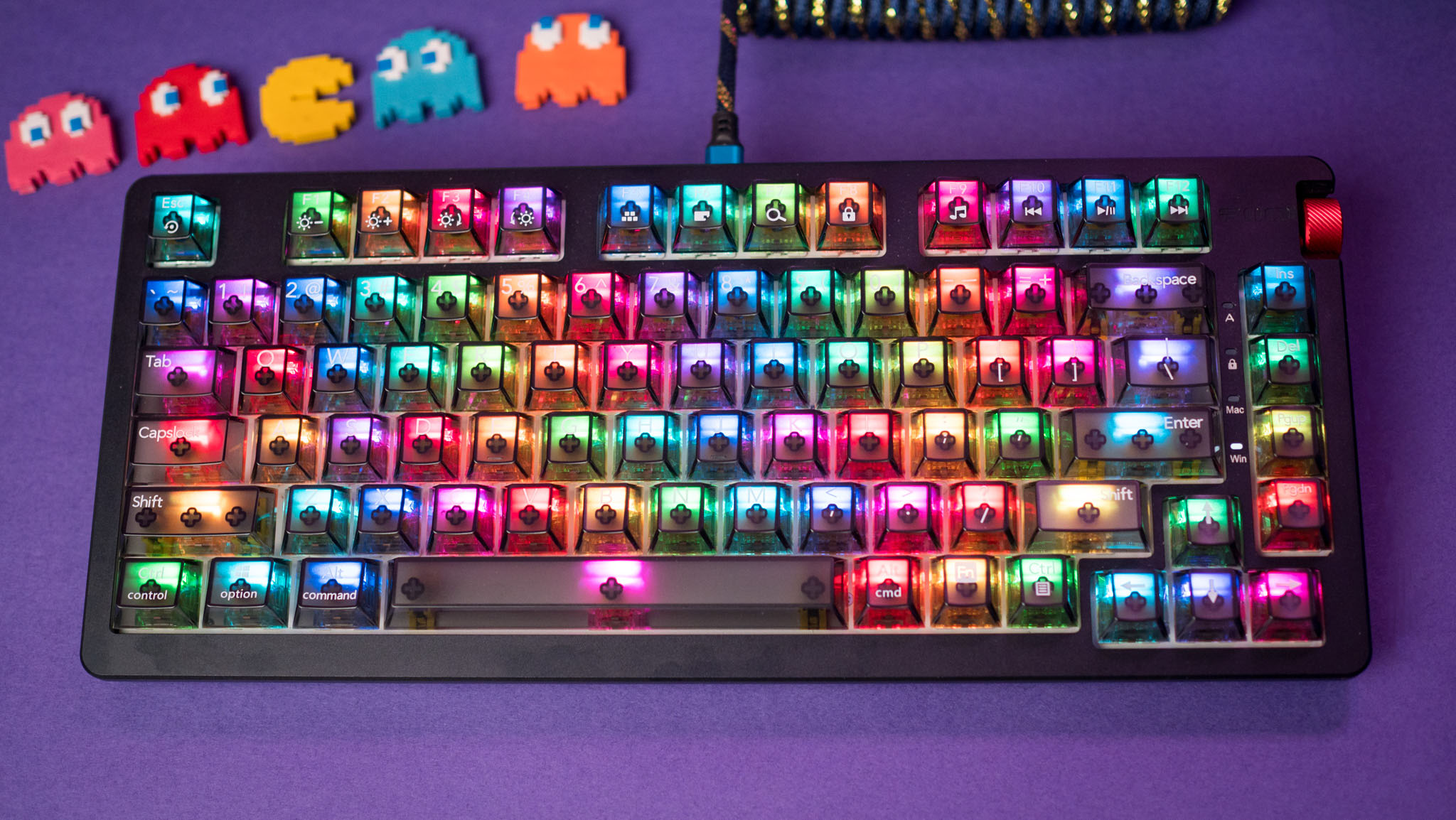
I'll get to the DAC side of things shortly, but before that, let's look at how the KB3 holds up as a keyboard. My daily driver is Angry Miao's ridiculous Cyberboard R4; the keyboard has a unique design and costs $750. The KB3 has a much more subdued design, and it is on the smaller side considering you get a tenkeyless configuration.
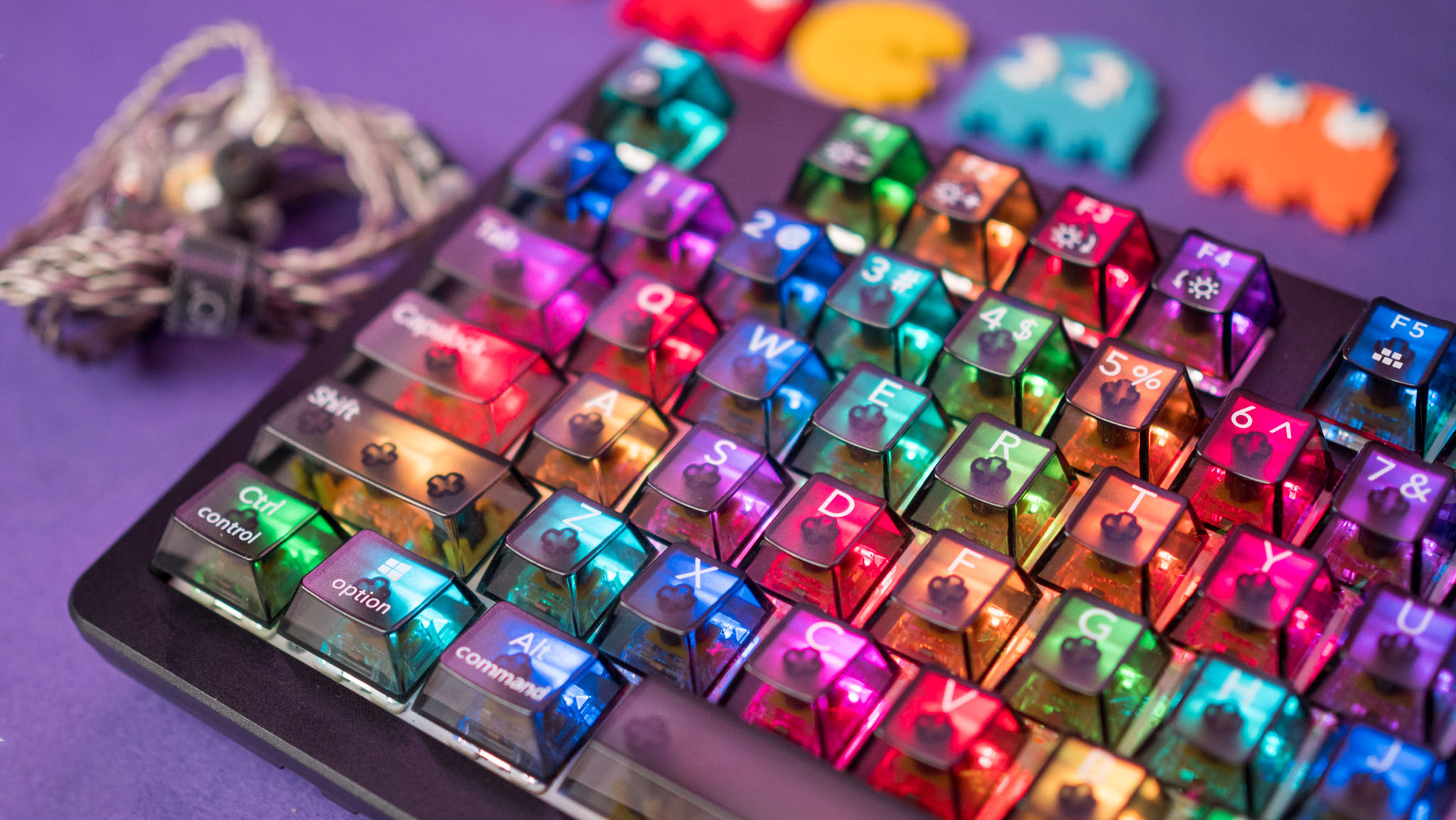
The top plate is fashioned out of aluminum and has the same brushed metal texture as the K9 Pro DAC and other high-end Fiio products. Like other gasket-mounted keyboards, the KB3 uses two layers of sound absorbing foam along with silicone gaskets and a dampening layer to reduce sound resonance within the chassis.
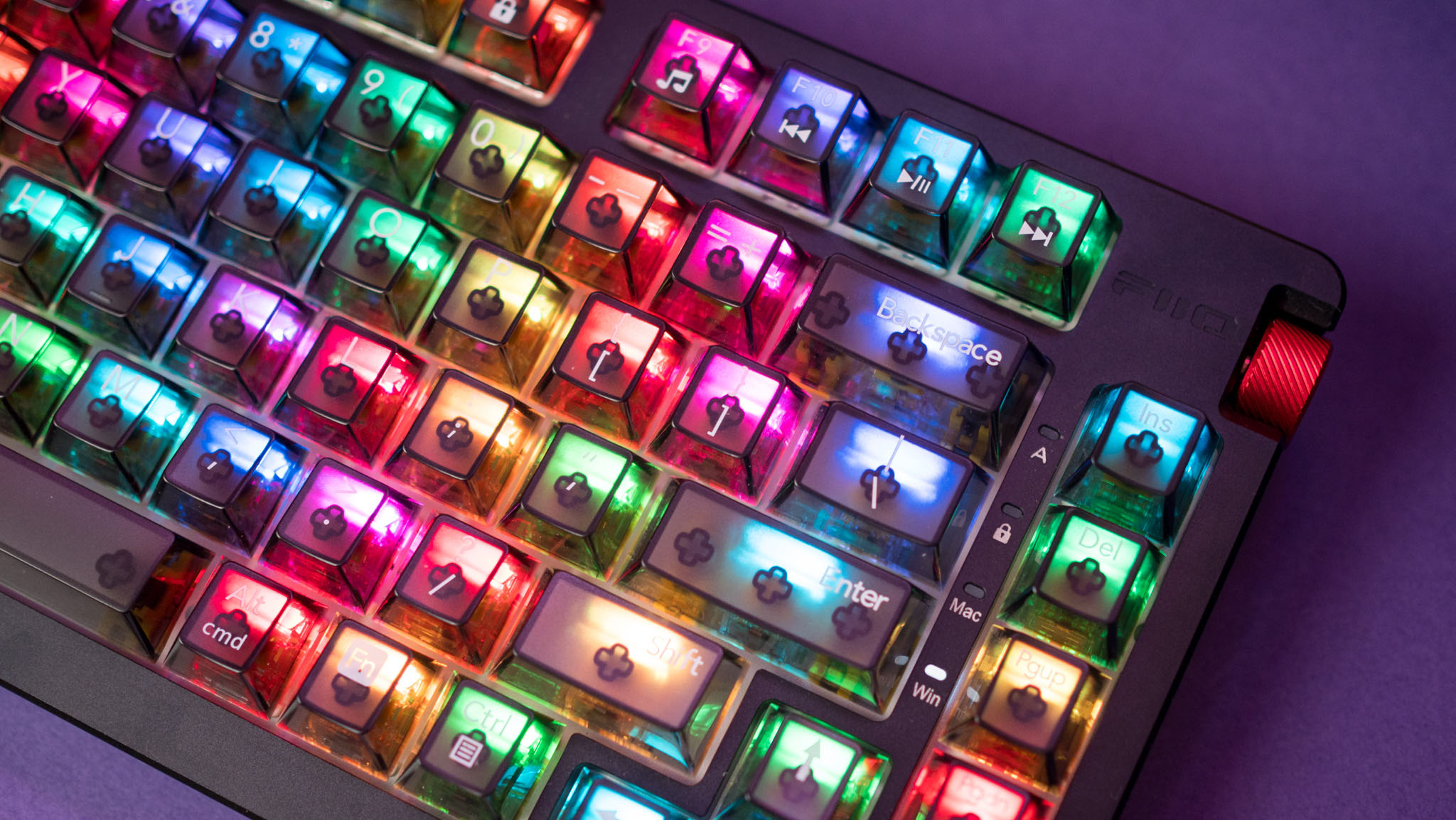
The KB3 doesn't have anywhere quite the same level as bounciness that is a characteristic of the best gasket-mounted keyboards like the Keychron Q1 Pro. If anything, it is just as rigid as a regular mechanical keyboard, and if Fiio didn't explicitly mention that it is using a gasket design, that fact wouldn't have been obvious.
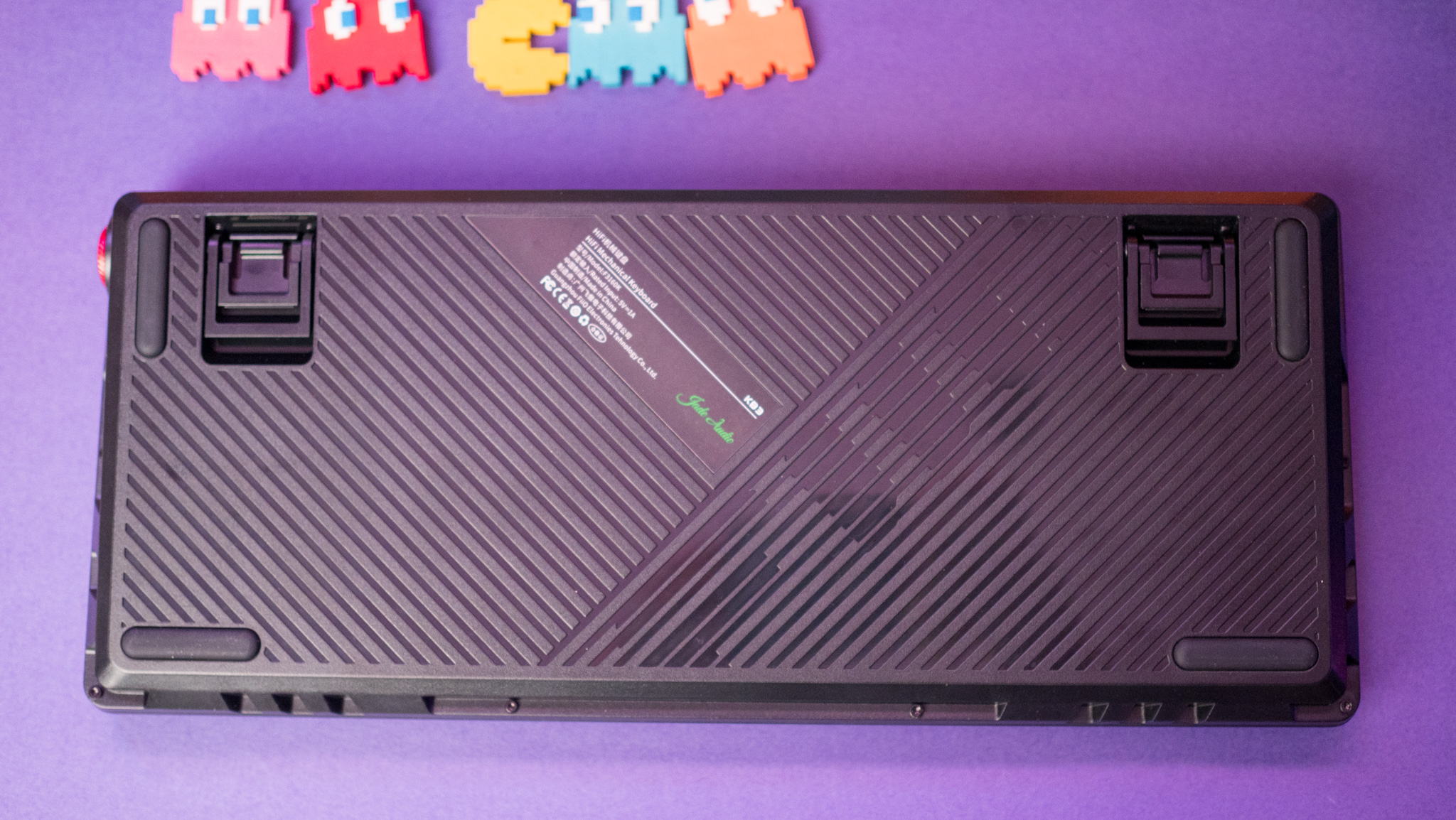
Another quibble is the choice of materials; the KB3 uses a bottom case that's made out of plastic, and it doesn't quite have the same feel as other mechanical keyboards in this segment, which use all-metal designs. That said, I didn't see any issues with build quality whatsoever.
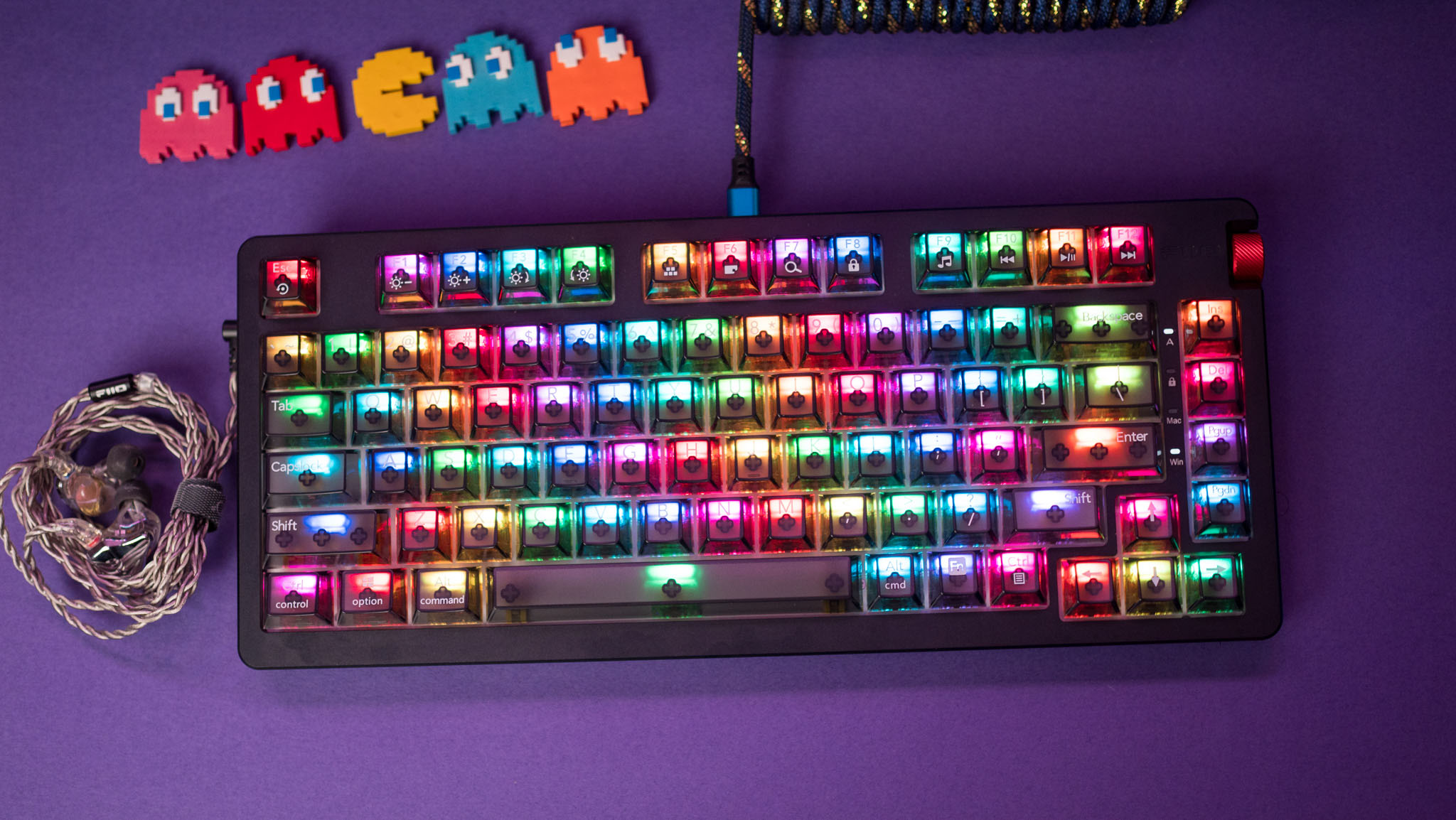
Fiio didn't go overboard with the design itself, and the KB3 has a minimalist aesthetic that looks great. The only design flair is the red-accented volume knob that's located on the right, and other than a small Fiio logo next to the F12 key, you don't get any branding.
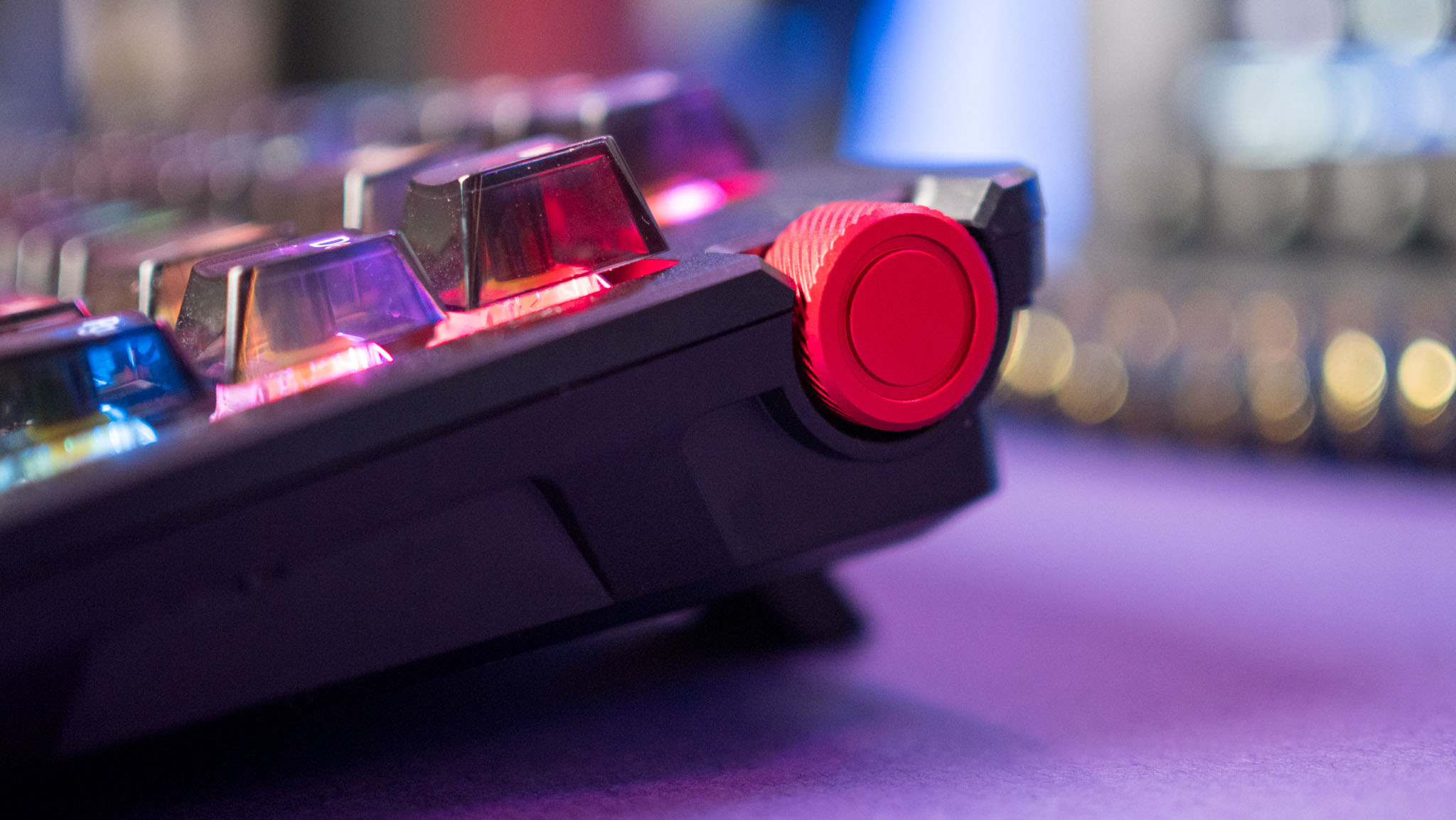
The keycaps are the definite star of the show, with Fiio offering a transparent design that brings the best out of the RGB lighting effects. The keycaps have a matte finish and are great to use, and if anything, I prefer these to the Glacier keycaps that come as standard on the Cyberboard. The keys use the standard OEM profile with markers on the F and J homing keys, and the see-through design is terrific at diffusing light.
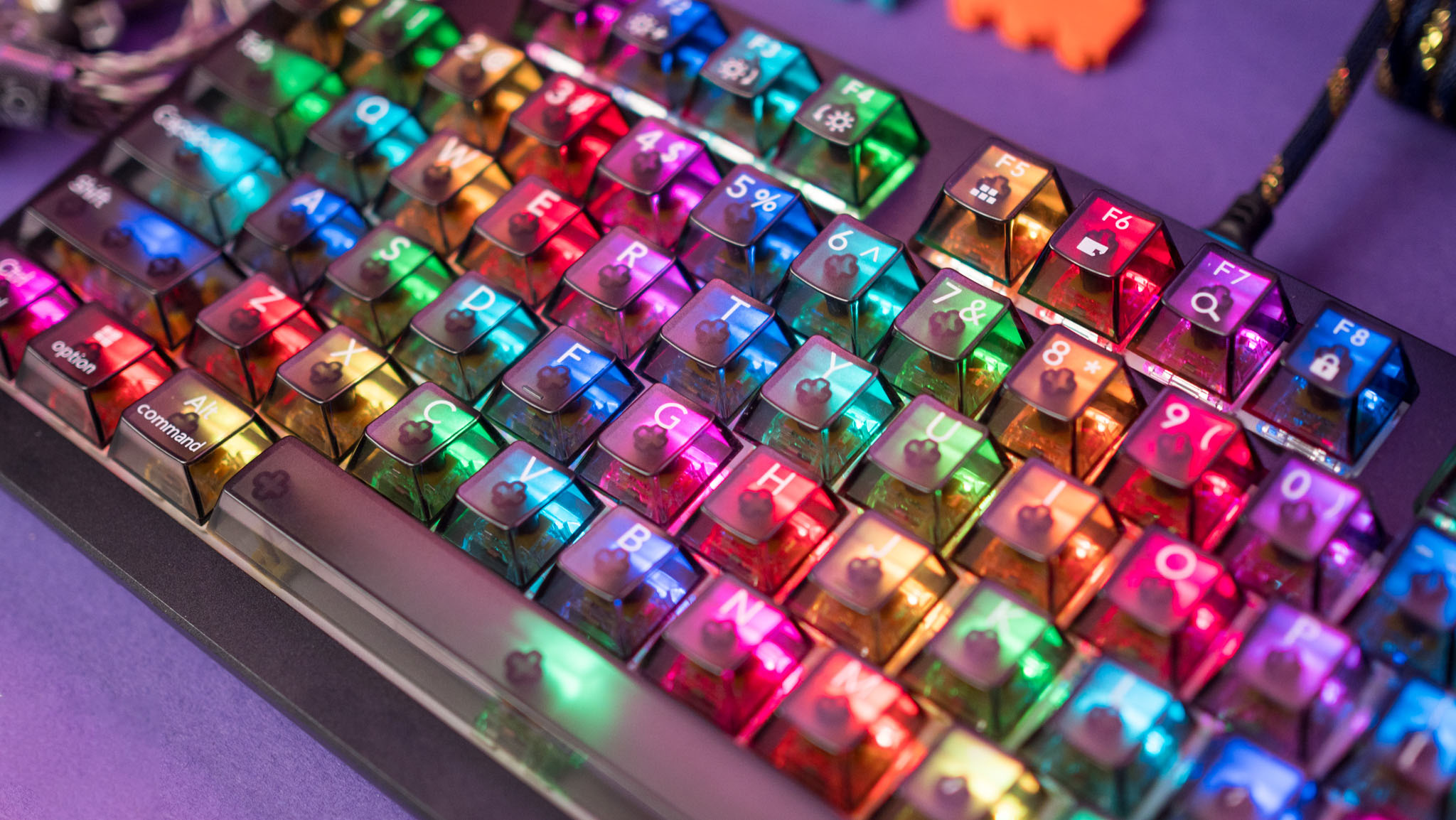
Fiio bundles the KB3 with Gateron's G Pro 3.0 yellow switches, and they're an excellent pairing. The linear switches are delightful to use, and they have a high actuation point (50g) along with a 2mm pre-travel and 4mm total travel. Having used Gateron's Box Ink V2 Black and Oil King switches extensively over the course of the last 12 months, the G Pro 3.0 yellow definitely has a lot to offer.
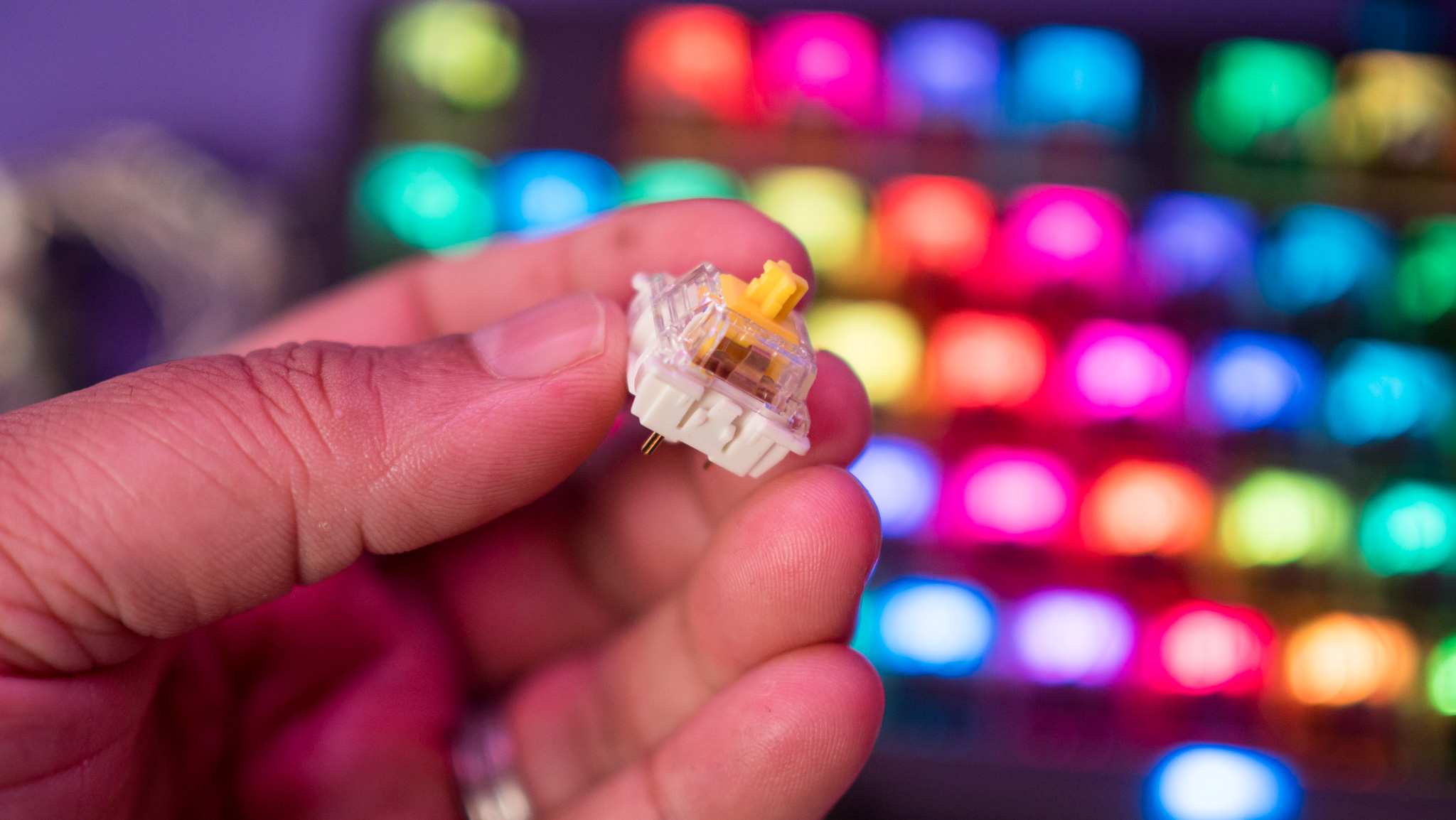
It doesn't quite have the same smooth tactility as the costlier Gateron switches, but it holds up incredibly well within the KB3. And if you don't like the feel of the linear switch or want to use something else, you can easily swap them out.
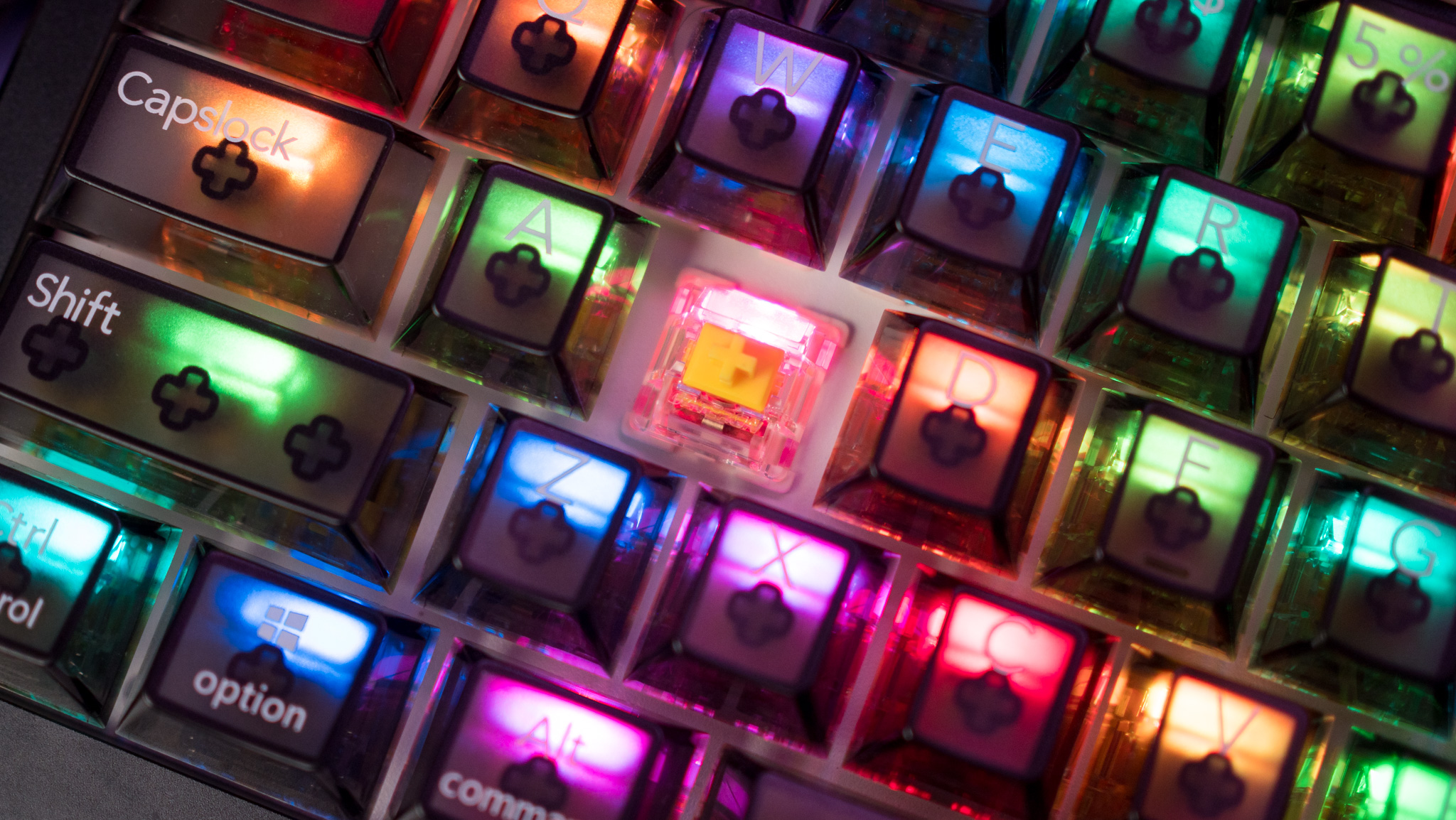
Like other tenkeyless designs, the KB3 has a total of 81 keys; you don't get a dedicated number pad, and the navigation keys are limited to Insert, Delete, Page Up, and Page Down. While I was excited to see that the keyboard has VIA integration, it doesn't actually connect to the software. The keyboard shows up in the VIA device list, but it doesn't connect, so I wasn't able to customize the keys and tailor RGB lighting.
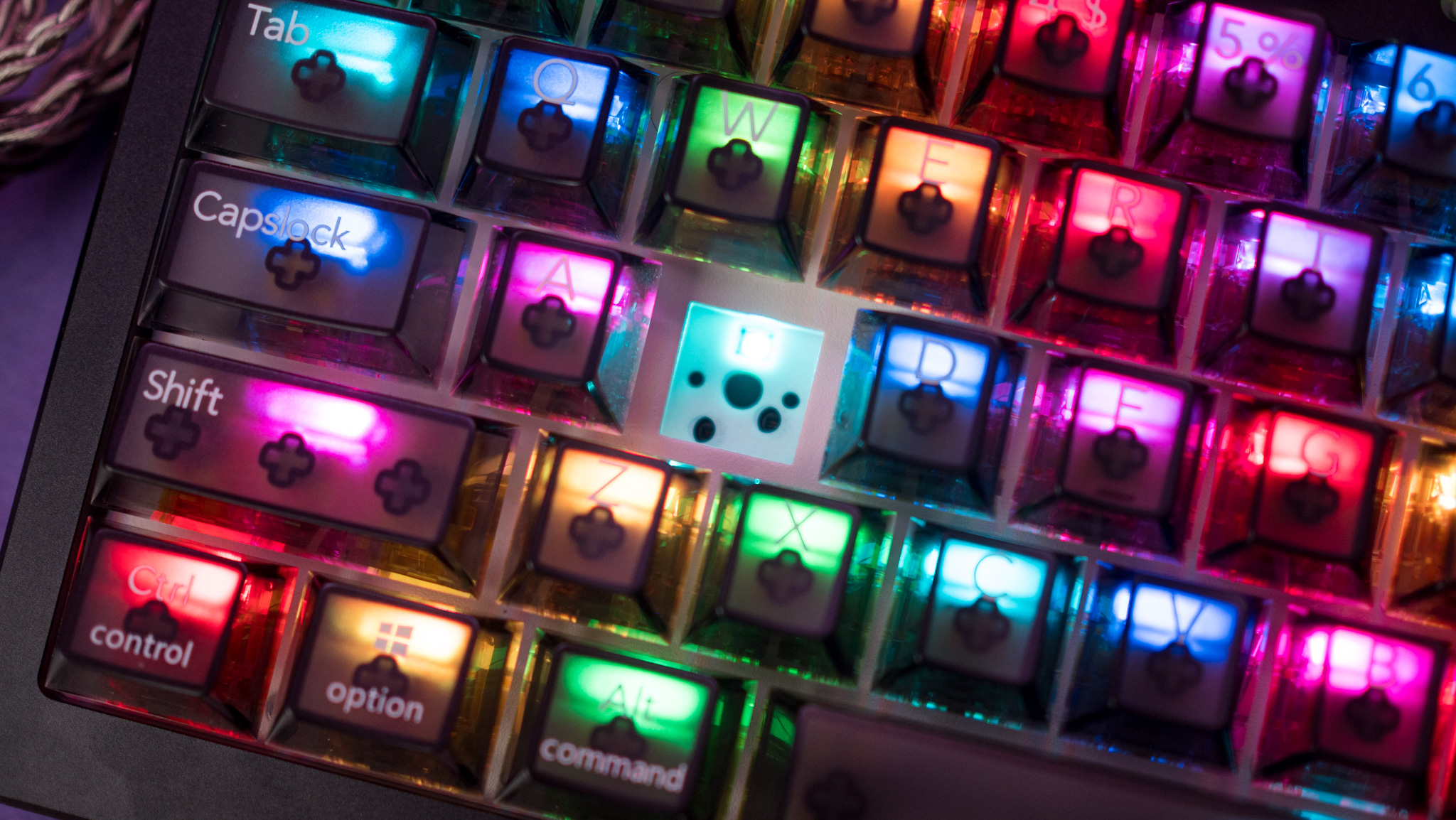
That said, the keyboard has a lot of preset RGB lighting effects out of the box, and you can adjust the brightness of the RGB LEDs or disable them entirely. Fiio did a good job with secondary legends, and you can change RGB effects via keys F1 through F4, and use F9 through F12 to adjust music playback.
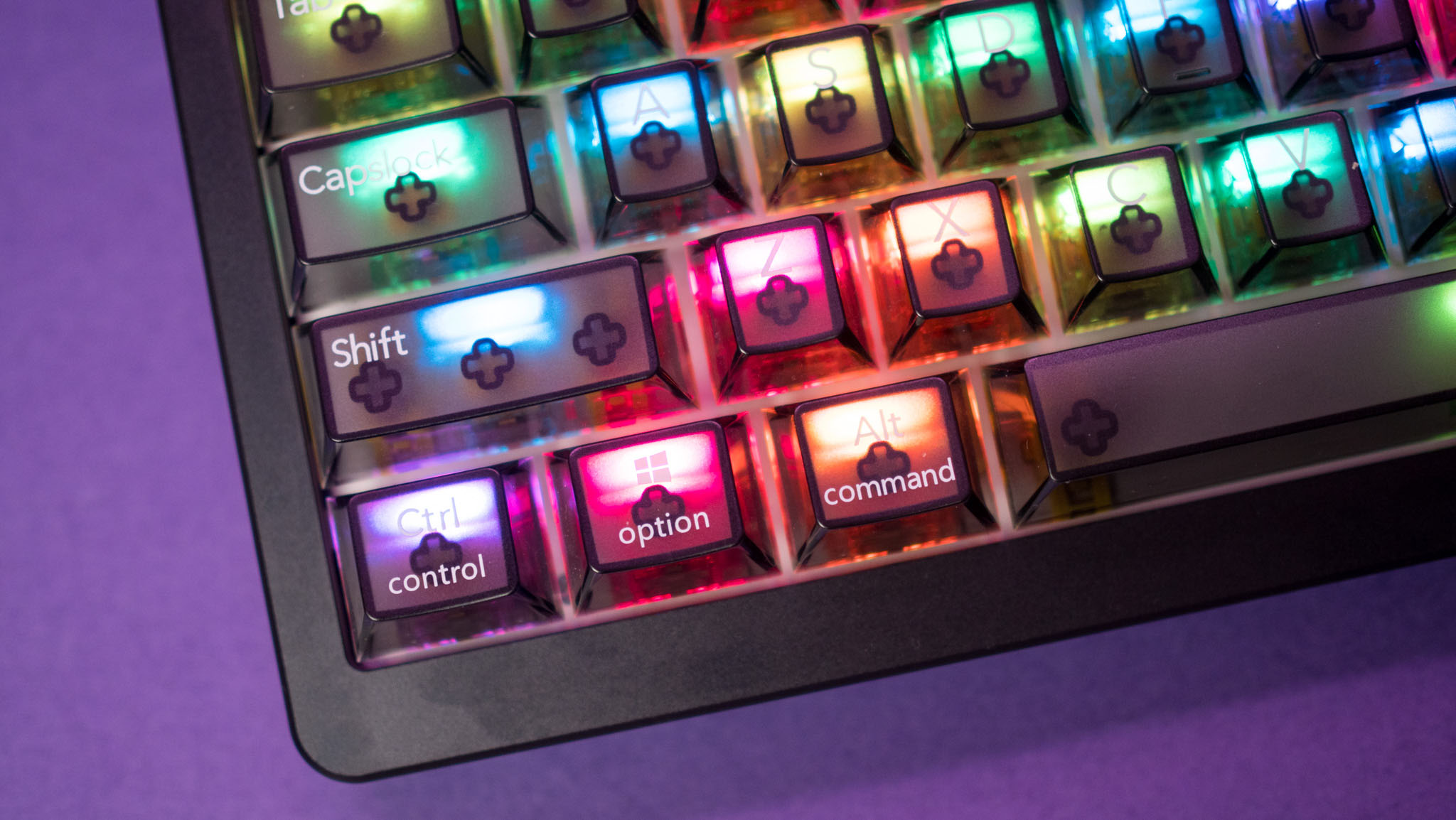
The keyboard connects via a detachable USB-C cable, and what I like is that you get two USB-A passthrough ports, so if you want to connect other accessories, you can do so with ease.
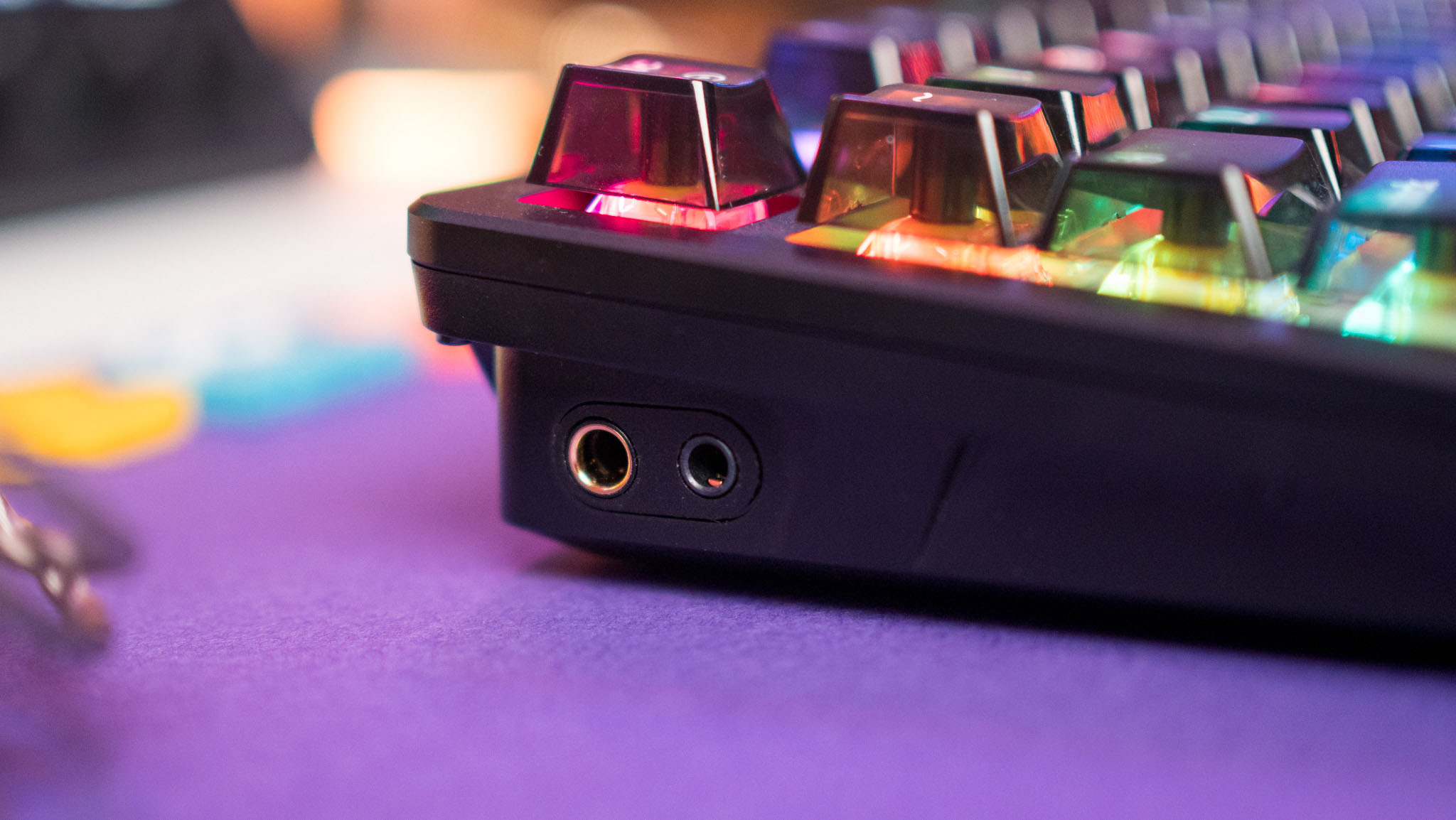
Coming to the audio side of things, the KB3 has two ports on the left: single-ended 3.5mm and a balanced 4.4mm connector. It uses a Cirrus Logic CS43131 DAC chip combined with an SG Micro SGM8262 amp, and it handles up to 384kHz/32-bit over PCM and DSD256.

There's no shortage of power, with the DAC providing 170mW via the 3.5mm port at 32Ω, going up to 550mW over the balanced 4.4mm port at 32Ω. The KB3 is able to drive any IEM on the market as well as demanding headsets, and I used it with Fiio's own FT3 headset and JH5 monitors, and it held its own.
I tested all the DACs that Fiio released over the last 18 months, so I'm aware of the brand's tuning and sound characteristics. The KB3 shares a lot of similarities to the KA13 in terms of the sound, and that isn't astonishing when you consider they share the same hardware. The DAC delivers a clean sound with a wide soundstage, and you get good dynamics overall.
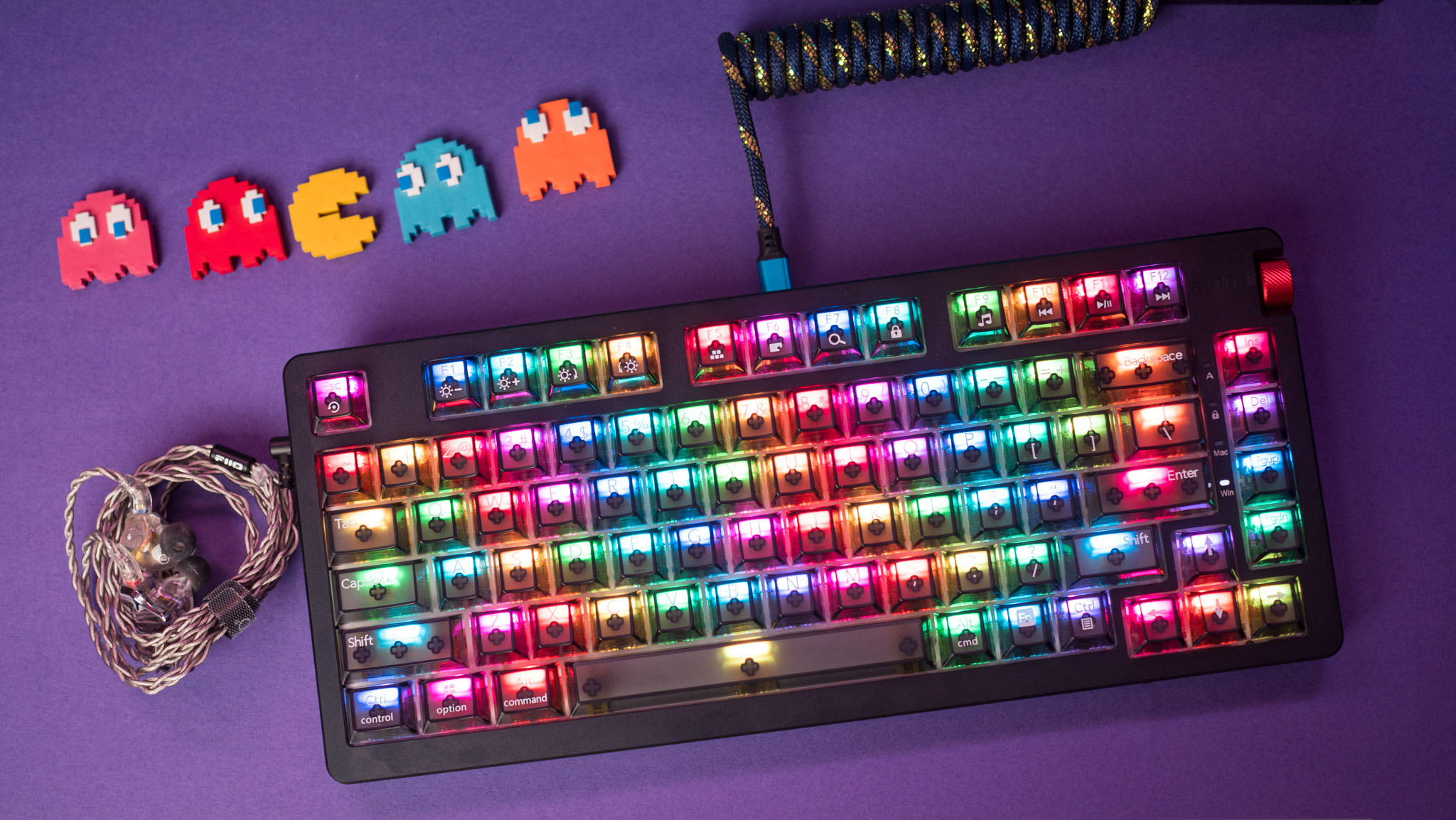
The KB3 tends to deliver a vibrant low-end that's delightful, and that's joined by natural mids and clear highs with no hint of sibilance. Overall, the bundled DAC is an excellent choice if you want something that can drive demanding headsets while delivering an engaging sound.
Ultimately, the KB3 is a unique offering that combines two niches into a single product. It is a decent mechanical keyboard in its own right, and the inclusion of a DAC makes it that much more desirable. As a two-in-one device, it is unchallenged in this category.







